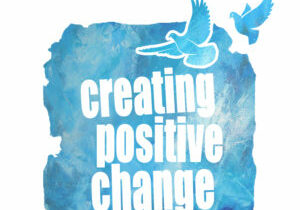Sleep and Mental Health
The quality of your sleep has a direct impact on your mental health and your mood. Without adequate rest, your brain can not restore itself and function properly. When you don’t sleep well, you are more irritable with loved ones, more impatient and more likely to experience symptoms of anxiety and depression.
But most Americans have difficulty getting a good night’s sleep. Why is that? Well, while there are many factors that can affect your body’s rhythms, such as shift work or medication side effects, in short, our difficulties with sleeping can be explained by electricity and stress.
How Electricity Affects Sleep
Put simply, our brains are designed to coordinate with the sun’s rhythm. Our neurological system is affected by sunlight: when the sun rises, our bodies know it’s time to wake up. When the sun sets, our brains are triggered to begin transitioning to rest and sleep. That system worked well for humans for thousands of years, and then……we invented electricity and artificial light. Today, artificial light includes fluorescent lighting and other bright lights (including phones and computer screens) and this tricks our brain into believing that the sun is still up.
Stress & Sleep
When we are stressed, our body releases chemicals such as cortisol and adrenaline. These chemicals tell our brain that we are in the midst of an emergency. So, our brain doesn’t let us sleep (because sleep is usually not a good idea during an emergency). However, deadlines, demanding children and difficult bosses, while annoying, are not emergencies, but our constant worry about those things keeps our body in alert status, and prevents us from sleeping well.
By following these simple tips every night, you will likely notice improvement in your sleep after just a few weeks:
- Set a bedtime, and one hour before that time turn off ALL screens (TV, phone, computer, iPad), and turn off all overhead lighting. Use only table lamps with dimmed light bulbs.
- Put on some soft music (the sort of music you might hear at a spa).
- Take a hot bath or shower. As a bonus, you can light some candles or burn essential oils that have a relaxing sleep-inducing scent.
- Do a ten or fifteen minute meditation.
- Read a spiritual, self-help, or encouraging book (think “Chicken Soup for the Soul” series) for about 20 minutes.
By following this simple routine for just a few weeks, you’ll start seeing your sleep rhythm improve. If you don’t see any improvement, then make an appointment with a qualified psychotherapist or physician for a more in-depth evaluation of your sleeping problem.
RELATED POSTS:
Get In Touch
(954) 559-2936
Please contact me via my contact form at vcita:
Contact Form for Plantation Counseling and Wellness / Plantation Psychiatry
We Are Hiring!
We are always looking for great clinicians and administrative staff. If you are interested in working with us, email your resume and a brief note to [email protected]
Tour Our Office
Our counseling, therapy and psychiatry office in Greater Fort Lauderdale, Florida is private and cozy.
Take a peek inside!


Dr. Chantal Gagnon
Dr. Chantal Marie Gagnon, Ph.D., LMHC is a licensed psychotherapist, relationship counselor, and life coach in Plantation, Florida. Dr. Gagnon provides individual therapy, family counseling services, and couples therapy in her Plantation, FL office. Coaching services are available nationwide.
Did this Article Help?
Here are a few more you might want to Read





















